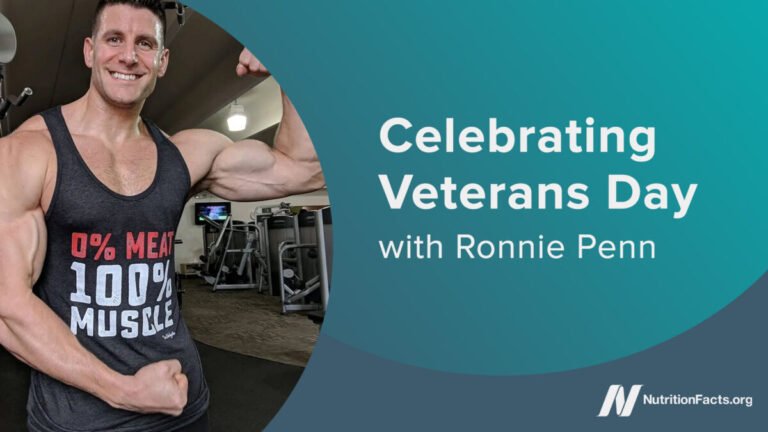We had the pleasure of speaking with Ronnie Penn about his military service, his work as a chef and coach, and what Veterans Day means to him. We hope you enjoy this interview. |
Thanks for your service, Ronnie. We are honored to speak with you today. Can you start by sharing a little about your background? What inspired you to enlist and when did your military journey begin?
I grew up wanting to serve something bigger than myself and the Marine Corps gave me that opportunity. I enlisted in 2004 and deployed to Iraq during Operation Iraqi Freedom and Afghanistan from 2012 to 2014. Later, I served in the Coast Guard as a chef, which opened a whole new chapter in how I looked deeper into nutrition. Service taught me discipline, resilience and the importance of teamwork — qualities I bring to everything I do today.
How did your time in the military shape who you are today? Is there anything specific about your service that you would like to share?
The military taught me to stay calm under pressure and adapt quickly. Whether it was on deployment overseas or working with my mates in the galley, I learned how much impact food, mindset and discipline can have on performance and morale. These lessons have shaped who I am now—not only as a veteran, but also as a coach helping others take control of their health.
Were there habits or disciplines from your military experience that helped your transition to plant life or your job today as a coach?
Two habits have stuck with me: structure and accountability. In the Marines, every detail mattered. This same mindset helps me stick to meal prep, workout programs, and coaching clients. It also made the transition to a plant-based diet easier because I was already used to planning ahead and being intentional about what I put in my body.
You’ve talked about health issues that arose in the build-up to the race, which ultimately led you to switch to a plant-based diet. What symptoms were you experiencing at the time and what physical or medical changes did you notice after the transition?
When I was competing in bodybuilding, I pushed my body hard—lots of animal protein, supplements, and a restrictive diet. Over time, I developed digestive problems and constant fatigue. Switching to a whole food, plant-based diet changed everything. My digestion improved and my energy returned. It was amazing to see how quickly the body can heal itself when you give it the right fuel.
Did you face challenges accessing or preparing plant-based foods while on active duty? How did you make it work in this environment?
Back then, plant-based options were limited, especially in growing. I put in oatmeal, beans, rice, fruits and veggies whenever I could, and I also had to get creative. I learned how to make simple meals with whatever was available and that creativity carried over into my role as a chef in the Coast Guard.
Were there any particularly memorable reactions from your colleagues when you introduced them to plant-based meals as a Coast Guard chef?
At first, my companions were skeptical. But once I started cooking hearty meals like lentil stew, veggie burritos, or black bean burgers, they were surprised by how filling plant-based food could be. I still remember a crew member saying, “I didn’t even miss the meat.” Moments like these showed me how powerful food can be in changing perceptions.
You’ve become a vocal advocate for plant-based nutrition in high-performance environments. Are there specific studies or sources that informed or strengthened your choices?
The work of Dr. Greger and NutritionFacts.org had a huge impact on me. I also relied on research from the Physicians Committee for Responsible Medicine (PCRM) and books such as The study of China. Seeing the science gave me confidence that a plant-based diet wasn’t just personal preference. it was based on evidence. Also, the Netflix documentaries What is Health? and Forks over knives they were also highly effective influences.
In your opinion, how can education about whole plant food preparation be a path forward for people to achieve better health?
Education is the key. When people learn how to prepare whole plant foods in simple, delicious ways, the intimidation factor is removed. Once they see how it can lower blood pressure, improve energy and even prevent chronic disease, it clicks. Food literacy is one of the most powerful tools we have for better health.
Tell us about your online personal training program and application. What inspired you to start these projects and how do they help you reach more people with your message?
I started online fitness training because I wanted to reach people beyond the gym. Not everyone can afford a trainer, but most people have a smartphone. Through my workout app, I provide meal plans, workout routines, and a grocery list with accountability check-ins. It’s a way to scale what I do—helping people take small, daily steps toward a healthier life.
Finally, what does Veterans Day mean to you? Is there anything you’d like to share with your fellow veterans?
Veterans Day is a time of reflection for me. It’s about honoring the sacrifices of those who served, as well as reminding myself to live in a way that gives meaning to that service. I want to encourage other veterans to take care of themselves, not only physically, but also mentally and emotionally. We served our country. now is the time to serve ourselves by living a healthy and purposeful life.
To learn more about Ronnie, visit his website:
